VOCATIONAL
The Vocational room is where our students can practice Activities of Daily living. Such activities include making of bed, ironing, folding, and hanging of clothes. This is also where they practice sorting of laundry as well as sorting items within the cupboard.

Speech and Language Therapy (SLT)
Speech and Language Therapy (SLT) plays a vital role in the assessment, diagnosis, and treatment of Autism Spectrum Disorders. Our SLT’s are able to assess speech, language, cognitive-communication, and oral/feeding/swallowing skills. Holding a minimum of a Master’s Degree and a DHA License, our SLT’s are also able to identify types of communication problems such as: articulation; fluency; voice; receptive and expressive language disorders and the best way to treat them. Our SLT’s are fluently trained in: Makaton Sign Language; ASL Sign Language; Hanan; PECS; and other AAC devices such as proloquo2go and quick talker.
SLT is provided for students attending the day program between 8.30 am-1.30 pm. In addition to this, children enrolled can access additional after school therapy services. These additional sessions run between 2.00 pm-4.15 pm. These afternoon sessions [between 2.00 pm-4.15 pm] are also available to the general public, however we do have a limited number of appointments. Our SLTs are able to provide assessments and treatment plans for children, adolescents and adults with a broad range of diagnoses. Please click here to contact us should you wish to enquire about these appointments.
Occupational Therapy (OT)
Occupational Therapy (OT) helps individuals develop and/or regain skills important for independent functioning, health and well-being. An OT can identify strengths and difficulties, such as dressing or writing, and will help work out practical solutions. OT’s work from a holistic perspective, in that the focus is on adapting the environment to fit the person. Holding a minimum of a Bachelors Degree and a DHA License, our OT’s recognize the common sensory processing barriers affecting those with Autism Spectrum Disorders, and are trained to provide sensory integration, which focuses primarily on three basic senses; tactile, vestibular, and proprioceptive.
OT is provided for students attending the day program between 8.30 am-1.30 pm. In addition to this, children enrolled can access additional after school therapy services. These additional sessions run between 2.00 pm-4.15 pm. These afternoon sessions [between 2.00 pm-4.15 pm] are also available to the general public, however we do have a limited number of appointments. Our OTs are able to provide assessments and treatment plans for children, adolescents and adults with a broad range of diagnoses. Please click here to contact us should you wish to enquire about these appointments.
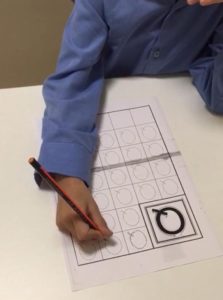
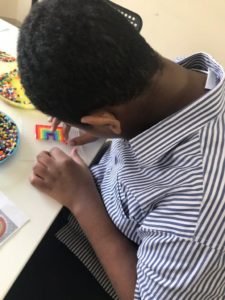
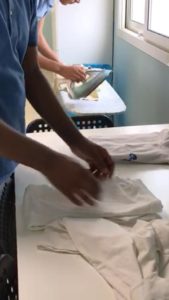
Sensory
Sensory Processing disorder is difficulty in detecting, organizing or responding to sensory information received and interpreted in the brain via all seven senses. We all have sensory processing differences; it can be only considered “Sensory Processing Disorder” when it causes significant difficulties in daily life, development, behavior and social interaction.
The three most common sensory systems affected with sensory processing disorder are Vestibular, Proprioceptive and Tactile. These three are also referred to as the power sensations and will be the primary focus of sensory based intervention as well as with a successful sensory home program.
Sensory processing disorder can be presented in two different ways. A child may be a sensory avoider and over-register sensory information coming into the brain from one or more of the sensory systems. On the other hand, a child may be a sensory seeker, and under-register sensory information coming into the brain.
Swimming
Swimming and it’s benefit for children with Autism
Swimming is fun and it can help ease symptoms of ASD , such as strengthen the muscles which increase the balance and develops better range of motions.
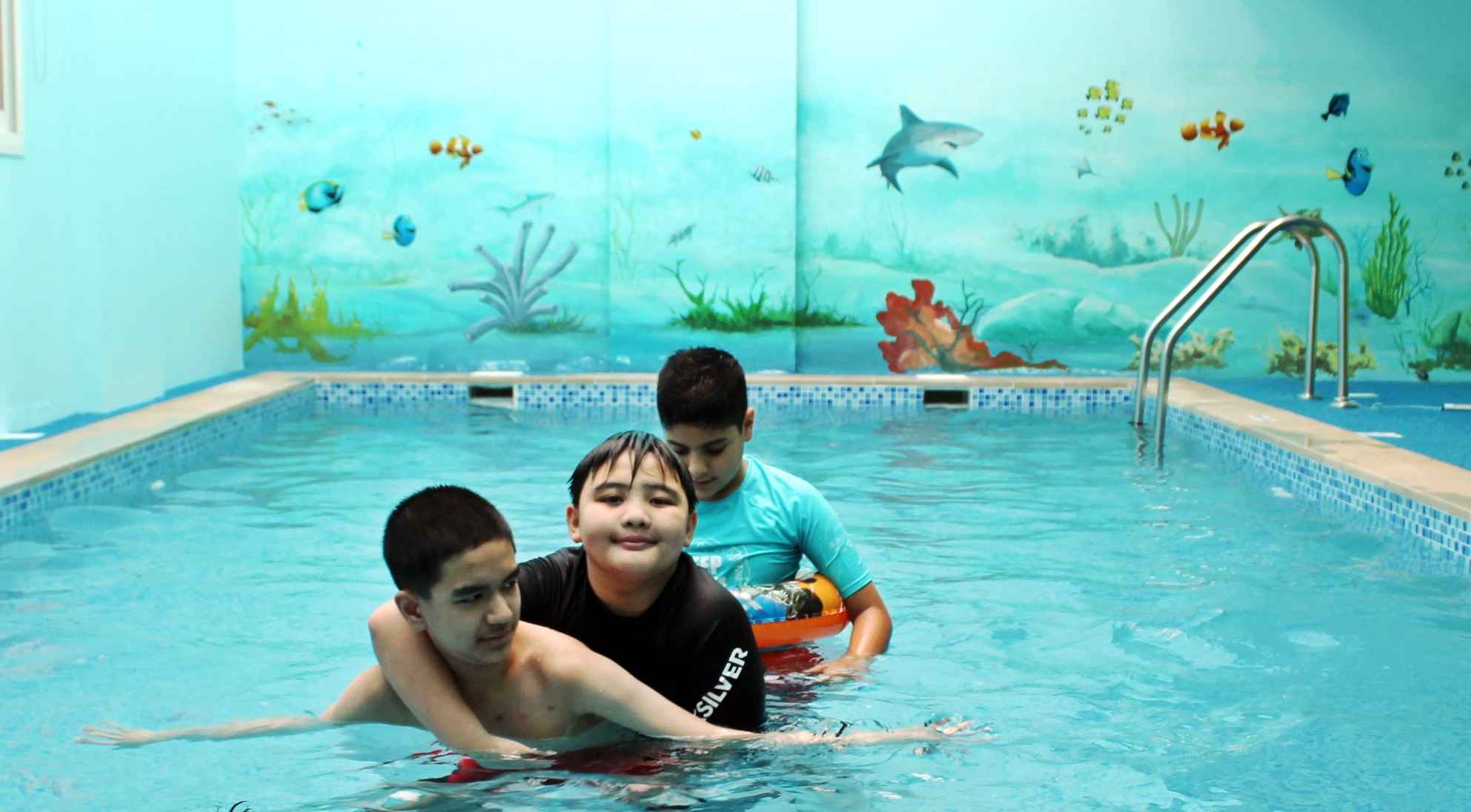
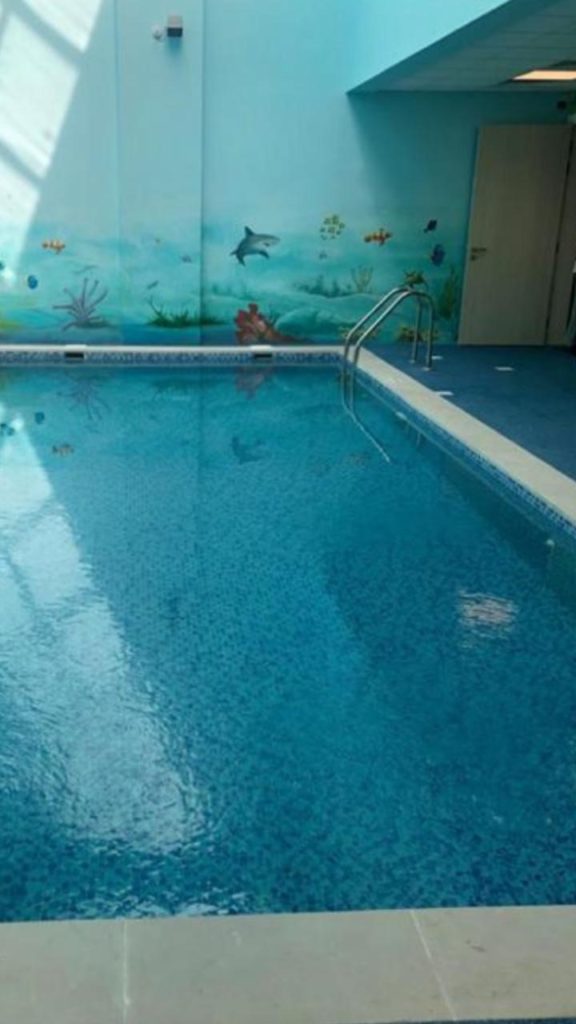
Transportation
Safe Center has two buses plying different routes and serving several areas of Dubai and Sharjah. The locations and annual bus fees per child are as follows.
Places are limited and are on first-come-first-served basis. the annual bus fee has to be paid in advance of the school academic year. This can be paid in two installments together with the first and third tuition fee payments.

